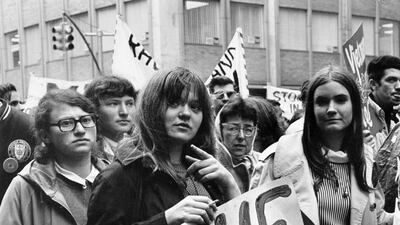Peter Walker is a writer with one foot in the past and one eye on the clock. He is interested in the ways that history happens, in the forces that shape our world, in the little tremors and seismic quakes that will determine our fates. Who are we, he asks? How did we get here? Where are we going? How fast?
In his first book, The Fox Boy (2001), Walker addressed these concerns by offering a non-fiction account of the life of Ngataua Omahuru, a Maori boy whose fate was determined by the clash of English and Maori cultures that existed in New Zealand in the 19th century, and who was captured and adopted by William Fox in 1869.
Walker's second book evinced a similar interest in the historical and biographical forces unleashed by the meeting, and the division, of cultures, only in this instance these questions were explored fictionally. The Courier's Tale (2010) offered an examination of the nature of England's break with Rome under Henry VIII by way of the story of Michael Throckmorton, Henry's courier and representative in Italy.
Where The Courier's Tale was tied closely to history, drawing heavily on primary sources, (Walker described it as "a documentary novel"), Some Here Among Us, Walker's third and most recent book, approaches its historical themes in a more oblique and less sustained way. Walker's concerns here are, in part, historical; yet he is also working on a determinedly human scale, moving in the realm of individual histories, the micro-histories of fear, love, loss, memory and mutability that constitute our lives.
When the novel opens we join a group of students – Race, Candy, Chadwick, FitzGerald and their intellectually precocious and charismatic friend Morgan – in Wellington, New Zealand. The year is 1967. America’s allies are debating whether to send more troops to fight in Vietnam, and our students are about to take to the streets to protest against the legitimacy of the war itself.
As this seemingly modest event unfolds, we are introduced to the complex network of aspirations, admirations, resentments and insecurities that exists among the group of friends. The novel then charts, in four further discrete parts, the development of these characters, with each section corresponding (in the following order) to a particular year and location: to Washington in the wake of September 11, 2001; to New Zealand, 1969; to Beirut in 2004 in the shadow of the war in Iraq; and to New Zealand, 2010.
These shifts in chronology are handled deftly, and Walker is adept at suffusing each episode with the atmosphere of its particular historical moment without allowing events to occlude the book’s personae. The reader can feel the import of history, but seldom is it shoved centre stage to make a point. Rather, it is made artfully to intersect with the lives and concerns of Walker’s characters, each of whom wrestles in a different way with fear, love, deprivation and what Walker calls “the heavy costs of time” – a word that occurs repeatedly throughout the novel as we see how Walker’s group of friends struggle to live with the knowledge of what time can do, has done, is going to do: rob us of the ability to see the world with innocent eyes, condemn us to live with a past that is at once inescapable and elusive, within our reach yet beyond our grasp.
Walker’s exploration of these themes can produce some compelling, memorable and beautiful writing. He is particularly adept at capturing the little gestures that accompany the most poignant of moments (“Race stood up. The others stood back a little, in doubtful respect for the bereaved”), and his ability to apprehend the emotions caused by the weather, by landscape, is often strong (“It was raining so hard you couldn’t talk, you could only laugh. It was raining with a kind of passion”). Yet these moments of sharp observation are accompanied by a tendency to allow unpleasant repetitions, superfluous similes and stale phrases to sap vitality from the book. The phrase “He marched away to greet Rod, his face like thunder”, for example, is diminished by the clichéd simile, not amplified by it.
Some Here Among Us features many such moments. Individually they are almost negligible. Cumulatively they contribute to a feeling that the book is somehow incomplete, fragmented, weightless. But when Walker is writing at his best, the reader is able to look past these infelicities and experience the novel as his own characters come to think about the world: as "a great lit-up room which you come into", and which, in time and with regret, you are obliged to leave.
Matthew Adams is a London-based reviewer who writes for the TLS, The Spectator and the Literary Review

